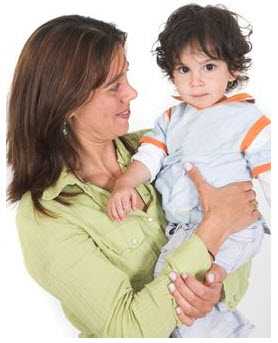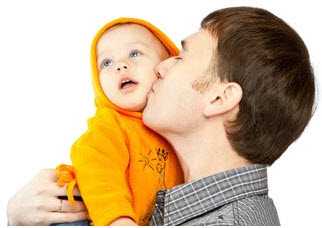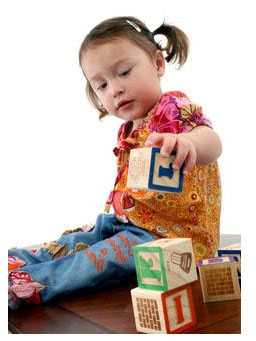Living with ASD
For many people with an ASD and their families, daily life is not easy. However, finding resources and planning for the future can help families improve their quality of life.
Family Issues
Living with a person with an ASD affects the entire family—parents, siblings, and in some families, grandparents, aunts, uncles, and cousins. Meeting the complex needs of a person with an ASD can put families under a great deal of stress—emotional, financial, and sometimes even physical. Respite care can give parents and other family caregivers a needed break and help maintain family well-being.
To find out more about this topic, click on the following links:
Family issues related to ASD, including siblings, extended family, religion, family stress, and safety from the Autism Society of America.
Healthy Living
 To stay healthy, people with disabilities need the same basic health care as everyone else. They need to eat well, exercise, get enough rest, drink plenty of water, and have complete access to health care, including regular physical and dental check-ups. It is important to find health care providers who are comfortable with persons who have an ASD.
To stay healthy, people with disabilities need the same basic health care as everyone else. They need to eat well, exercise, get enough rest, drink plenty of water, and have complete access to health care, including regular physical and dental check-ups. It is important to find health care providers who are comfortable with persons who have an ASD.
Sometimes when people with disabilities have a behavioral change or behavioral issue, it may be because they have a medical problem they cannot describe. For instance, head banging could be related to a disability, or it could be due to a headache or toothache. For this reason, it is important to find out if there is a physical problem before making changes in a person’s treatment or therapy.
To find out more about this topic, click on the following links:
Mental and Emotional Health
Physical Activity
Physical Health
Sexual Health and Sexuality
Sexuality for People with a Disability
Safety
Safety is important for everyone. We all need to be safe in order to live full and productive lives. People with disabilities can be at higher risk for injuries and abuse. It is important for parents and other family members to teach their loved one how to stay safe and what to do if they feel threatened or have been hurt in any way. It can sometimes be helpful to give a person with a disability a bracelet or other item that has his or her name, address, phone number, and disability on it in case he or she gets lost.
To find out more about this topic, click on the following links:
Bullying Among Children and Youth with Special Needs and Disabilities

Transitions
For some people with disabilities and their parents, change can be difficult. Planning ahead of time may make transitions easier for everyone.
The transition from high school to adulthood can be especially challenging. There are many important, life-changing decisions to make, such as whether to go to college or a vocational school or whether to enter the workforce, and if so, how and where. It is important to begin thinking about this transition in childhood, so that educational transition plans are put in place—preferably by age 14, but no later than age 16—to make sure the individual has the skills he or she needs to begin the next phase of life. The transition of health care from a pediatrician to a doctor who treats adults is another area that needs a plan.
To find out more about this topic, click on the following links:
Transition to Adulthood for People with an ASD
Transition Tool-Kit Top of Page

More Information
For information on topics not mentioned here, or for more information on those topics, try the following websites.
Disability.gov
This comprehensive online resource offers people with disabilities quick and easy access to the information they need. With just a few clicks, users can find information and programs available across the government on numerous subjects, including benefits, civil rights, community life, education, employment, housing, health, technology, and transportation.
GovBenefits.gov
GovBenefits.gov, a partnership of federal agencies, provides improved, personalized access to government assistance programs. This website can help people with disabilities and their families determine if there are government benefits they can receive.
Association for University Centers on Disability (AUCD)
AUCD’s University Centers for Excellence in Developmental Disabilities Education, Research, and Service (UCEDD) work to accomplish a shared vision of a nation in which all Americans, including those with disabilities, participate fully in their communities. Independence, productivity, and community inclusion are key parts of this vision.
Visit the UCEDD Directory. Top of Page
E-mail Your Friends
"Children with autism spectrum disorder are not being diagnosed as early as they could be. Learn the signs of autism and get help if you’re concerned."
Share on Facebook

“Many children with autism spectrum disorder (ASD) are not being identified as early as they could be. Early identification is the most powerful tool we have right now to make a difference in the lives of children with ASD.”
Share on Twitter
“Too many children w/ autism are not being identified as early as they could be. Earlier is better. #ActEarly”
- Page last reviewed: March 10, 2017
- Page last updated: February 26, 2015
- Content source:


 ShareCompartir
ShareCompartir